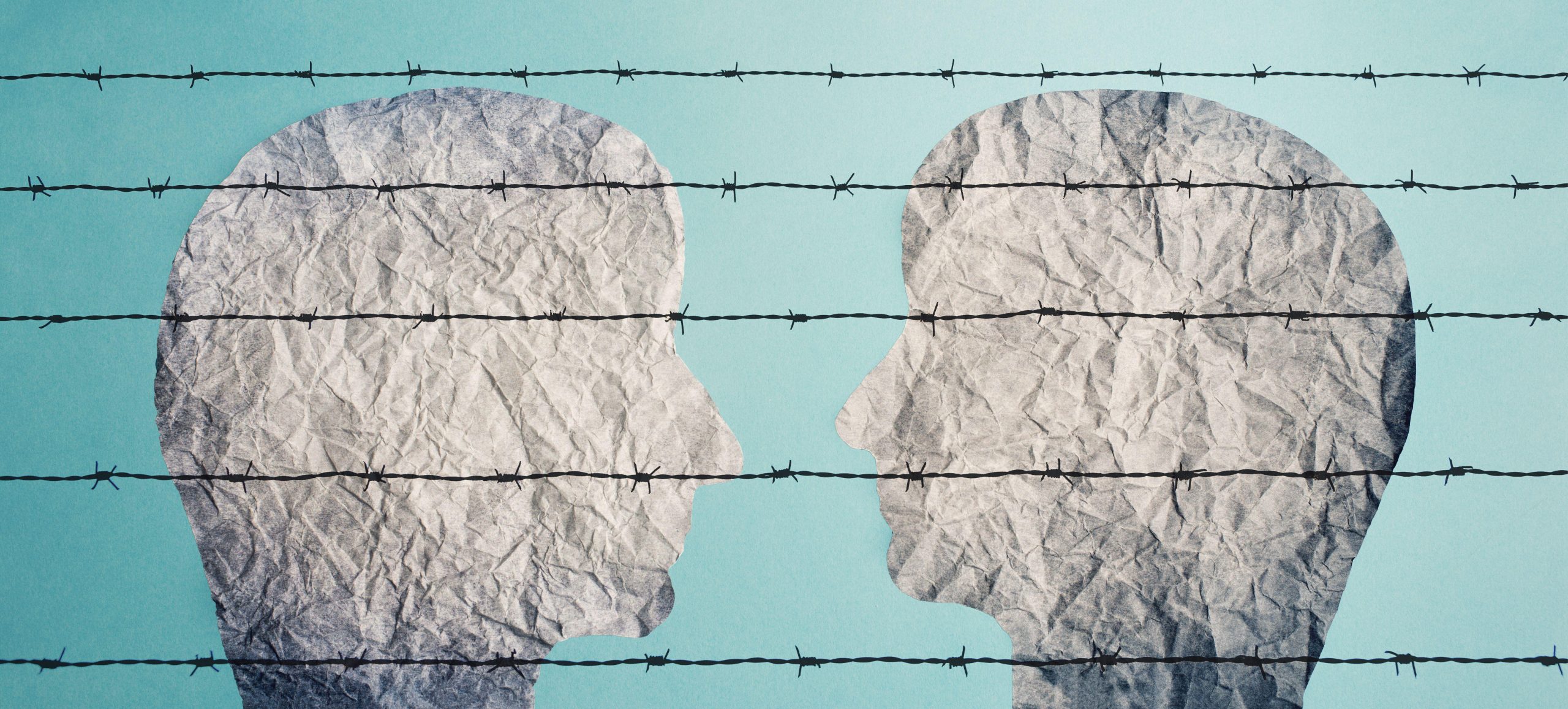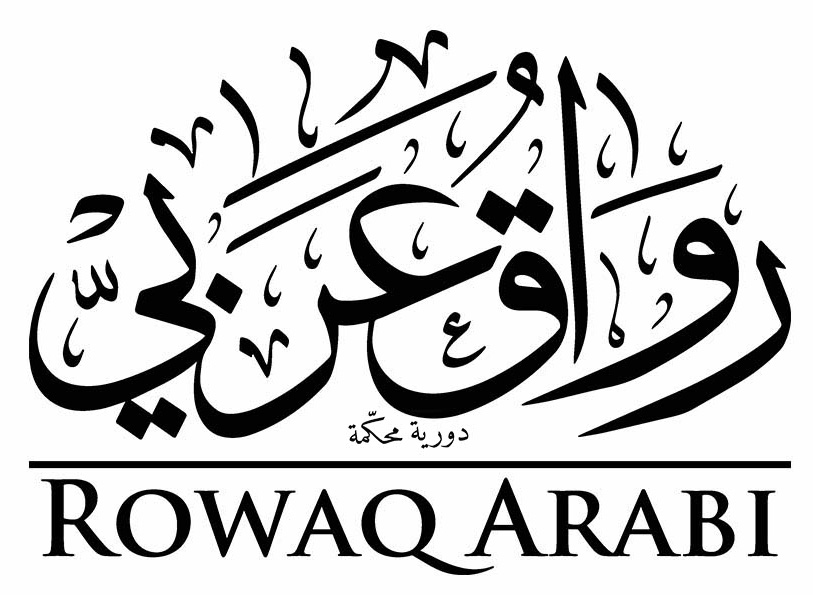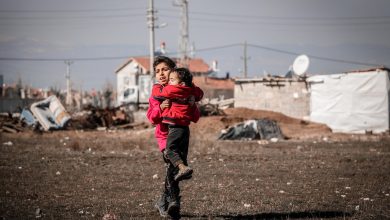Views: Who’s Really Committed to Human Rights? Ideological and Political Impediments in the Arab Region

Citation: Fishere, Ezzedine (2023) ‘Views: Who’s Really Committed to Human Rights? Ideological and Political Impediments in the Arab Region’, Rowaq Arabi 28 (2), pp. 54-65, DOI: 10.53833/FNSN2611
Introduction
The Arab Uprisings have shown that the crisis facing the region is much deeper than previously thought. Authoritarianism has shown itself to be more deeply rooted than its coercive apparatus, economic decay more complex than corruption and inequality, and institutional dysfunction more endemic than nepotism. Yet perhaps the most frustrating revelation, at least for human rights defenders, is that the commitment to freedom, equality, individual rights, and democracy is much weaker than generally assumed. Almost all political players, on the right as well as on the left, have sacrificed human rights at one point or another. As it has turned out, rights and freedoms do not figure highly on anyone’s priorities, except when it comes to defending their own rights and freedoms.
It is in the struggle between Islamists and secularists[1] that the readiness to violate human rights played itself out in the most glaring way, especially in 2012-2014 Egypt. Dramatic as it was, this was not the only case. Nationalists and leftists, as well as liberals, have openly supported egregious human rights violations carried out by Arab regimes such as that of Syria’s Bashar al-Assad, Saudi Arabia’s Muhammed bin Salman, Egypt’s Abdul Fattah al-Sisi, and organisations like Hezbollah, Hamas, and Islamic Jihad. They also supported violations committed by foreign regimes such as that of Iran’s mullahs, Russia’s Vladimir Putin, and China’s Xi Jinping. How does one explain this apparent contradiction between calling for freedom, equality, and human rights on the one hand, and the apparent infatuation with authoritarian regimes and fascist practices on the other? And what are the implications of that contradiction for the human rights movement in the Arab region? These are the questions this paper attempts to answer.
As is often the case with such broad questions, the answers are likely to be infused with a higher concentration of generalisation than what is advisable. The paper points to orientations, societal conflicts and narratives spanning more than twenty countries and three hundred million people over two centuries. Obviously, there are important variations within and between these societies, also over different periods. The paper also relies heavily on data driven from the Egyptian experience, not only because of the author’s familiarity with it but also given Egypt’s centrality to the conflicts under scrutiny. Therefore, it is probably wise to treat the propositions set forth by this paper as suggestions, working hypotheses, or possible explanations that need to be adapted to the temporal and spatial conditions of each case.
The paper is divided in three sections. The first identifies what it calls the foundational conflicts that frame the hegemonic narratives of Arab political thought and culture. The second analyses the impact of those narratives on the priorities of Arab political players. The third examines the constraints imposed by the hegemonic narratives on human rights defenders and the choices available to them.
Foundational Conflicts and Hegemonic Narratives
This paper approaches culture – including political thought – as a dynamic set of norms, values and ideas that are constantly shaped by societal conflicts, not as innate ‘national character’. In this perspective, understanding the priorities of Arab political players requires an analysis of the struggle – past and present – around norms, values, and ideas. This struggle is what I call here ‘foundational conflicts’, which go beyond – and include – the immediate conflicts over power, resources and identities. They are also permanent conflicts, which means that the ‘culture’ of any given society at any given time is simply a still frame in an endless series of images that change with the ongoing conflict over power, resources, norms, ideas and identities. We’re better served to remember that all these conflicts are ongoing. This invites us to look for the sources of change and the possibility of counter-hegemonic struggle, especially at moments when the conflict seems lost.
Among the foundational conflicts of the Arab region, I focus here on two: the question of how Arabs view modernisation and the question of how Arabs view ‘the West’. I argue that the way Arabs view these two questions has a decisive impact on political players’ priorities, with direct implications for human rights.
The Western question
In Orientalism, Edward Said suggested that ‘the Orient’, or the construction of a concept called the Orient, was an integral part of Europe’s construction of its self-image[2]. Similarly, this paper suggests that ‘the West’, or the construction of a concept called the West, was an integral part of Arabs’ construction of their self-image. This construction took place over time and through extended conflict and was itself subject to important transformations over more than two centuries.
Arabs’ fascination with the technological, military, and organisational prowess of western Europeans shaped their definition of ‘the West’ during the first half of the nineteenth century. Conflict raged among Arabs over what to do about it: what to emulate, replicate, and transplant, and what to avoid. During this period, the ‘early liberals’ dominated the narrative about the West and adopted a rather extensive definition of what needs to be emulated, including in areas of ethics and religious thought[3].
The second phase, from the mid-nineteenth century to the eve of World War I, witnessed an increasing fear that Western imperial designs would extend far beyond Algeria (already occupied since 1830). Although fear increased with time, fascination also persisted. Elites in the Arab region adopted strategies to quickly emulate Western innovations so that they could face European expansionist designs in the region. These strategies varied. Some, like that of Abdelkader in Algeria, centred military mobilisation and confrontation coupled with organisation and technical reforms. The strategy of Kheireddine in Tunisia and the Ottoman capital focused on introducing political and organisational reforms to fend off imminent European encroachment. Other elite strategists, including the rulers of Morocco, Egypt, and Tunisia, chose to build alliances with different European powers in an attempt to balance them off each other. None of these strategies worked. By 1914, all Arab lands fell- in one form or another – under European control[4].
The cultural and intellectual conflict over ‘the Western Question’ took a sharp turn in the following period, between 1914 and 1950. This period saw the spread of the ‘Fall of Western Civilization’ concept, which fed off multiple sources. On one hand, the atrocities of the First and Second World Wars, the scale of human, economic, military, and social destruction they caused, shook the belief in European claims of superior values and institutions. The erosion of this belief was widespread inside and outside Europe, including in its colonies. With it came the critical revisions of the foundational discourses of the concepts of modernity and progress. On the other hand, the weakening of the European empires and the emergence of a new, more confident generation of Arab nationalists, contributed to the spread of the ‘Fall of Western Civilization’ concept. Moreover, the infamous Sykes-Picot Agreement, the role of European empires in derailing the League of Nations and its promise of rule-based international order, the enabling of the Zionist movement which led to the United Nations Partition Plan of 1947, the establishment of the State of Israel and the subsequent Palestinian Catastrophe of 1948 – all of that contributed to Arab elites adopting of a more belligerent definition of ‘the West’, representing their desire to challenge and distance themselves from it. This is the period when Islamic revivalism and ethnic nationalism gained popular momentum. When Taha Hussein called on Egyptians to drop the notion that they are fundamentally different from Europeans – that they belong to separate species- and to appreciate the cultural heritage they both share, his words were understood as a call for Westernization, not a rehabilitation of universalism[5].
Since the 1950s, the hegemonic narrative about the West collapsed all its societies in a single entity, imperialist, bent on controlling the Arab region and its resources, and on preventing Arabs from developing themselves and standing on their own feet. This West is also ahistorical; the modern-day imperial West is the same that led the crusades and the same as the Roman Empire that occupied Egypt and Palestine, etc[6]. This narrative also includes a definition of ‘Western culture’ as materialist, lacking spirituality, and in most cases lacking morality, chivalry, and solidarity, and instead dominated by selfishness, bodily desires, decadence, and cold interest calculations at the expense of the human warmth and social solidarity championed by ‘Arab culture’. This narrative can be encapsulated by Sayyid Qutb’s infamous 1951 essay ‘The America I Have Seen’[7].
Several changes contributed to the spread and eventual hegemonic victory of this narrative. First was the rise throughout the region of middle, lower middle and rural classes, with their conservative worldviews that looked with suspicion at urban culture and associated it with the foreigners and the colonial powers who dominated it. Secondly was the rise of a radical – and often ethnic- Arab nationalism during the 1950s and 1960s. A third significant change was the emergence of the USSR, China and Japan as global powers, which offered the Arabs a model of modernisation without ‘Westernization’ and with, in fact, an anti-Western posture. This apparently reduced the cost of opposing Western powers – now that such opposition would not necessarily result in the denial of Arabs’ modernisation prospects – and offered a global brotherhood for all those opposed to the West. Finally, US imperial policies in the region were a significant contributor to the rise of this narrative, from the overthrow of the popular Mosaddeq government in Iran to the containment of Nasser in Egypt all the way to the occupation of Iraq in 2003. The complicity of Western governments in these policies, as well as the failure of Western liberals to influence their governments, have all contributed to settling the Arab conflict over ‘the Western Question’ in favour of the hegemony of this belligerent, ahistorical narrative.
The contributions of Edward Said and his disciples about Eurocentrism, cultural imperialism and authenticity further strengthened the anti-West narrative. Said made his contribution in a context of deconstructing grand literary narratives about ‘the Orient’ and unmasking the power relations involved in knowledge production about the Arab region. But the political heat around his arguments – itself part of the American cultural conflicts – left little room for nuance. Facing vitriolic attacks, Said’s responses at times shifted his initial propositions. What started as a critique of a certain type of Orientalist scholarship eventually became a wholesale dismissal of that scholarship. And what started as a critique of Western imperialism eventually became – especially at the hands of his postcolonial followers – a rejection of ‘the West’. Ironically, Said’s Orientalism turned into a grand narrative in its own right, one that has successfully been used to create new ‘regimes of truth’ comparable to those Said took aim at. Said himself opposed the nationalistic and Islamist uses of his theories and tried later in his life to warn against the new rigid attitudes towards the West (and even towards Israelis)[8]. But that more nuanced part of Said’s approach withered away with his death. Ultimately, Said’s more celebrated writings gave nationalists and Islamists intellectual and political ammunition to support their narrative about the West, spreading it in the humanities, social sciences, and critical approaches in academia and beyond, including among social movement activists working on gender equality and anti-racism. Today, this belligerent, ahistorical narrative of ‘the West’ has become hegemonic in the Arab region, on the left as well as on the right.
Defining modernisation/nahda
This paper suggests that modernisation[9] – or Nahda, Renaissance, Rise, or Development – has been the central quest of the Arabs since the late eighteenth century. Barring few exceptions in marginal regions, Arab elites and rulers have actively sought modernisation/nahda as much as they could. There was no agreement on the meaning of that modernisation/nahda, nor on its content, foundations, or scale. All of that was subject to fierce and protracted struggles (which were intertwined with the struggle over the relationship with ‘the West’). Ultimately though, the desire for modernisation/nahda was undoubtedly strong and widely shared, including by elites that later adopted Islamism[10]. Nevertheless, the narrative about the meaning of modernisation/nahda has changed over time and, consequently, changed the priorities of political players.
For analytical purposes, this conflict over defining modernisation/nahda can be divided into two broad perspectives. The first views it primarily as a series of technical, scientific and organisational innovations that enable the state and society to build powerful military, administrative, economic and technological systems that meet the needs of their population and acquire self-sustainability and growth. This technical view has been embraced by Arab and Muslim rulers since the nineteenth century. It has also been adopted by conservative elites and supporters of political Islam, to varying degrees[11].
The other perspective of modernisation/nahda frames these innovations as carried forward by intellectual and social transformations such as human emancipation and the individualisation of social relations. The former refers to the freeing of human thought from external authorities, such as religious institutions, dominant interpretations of sacred texts, political authorities, or social tradition and class. All of these lost their legitimate claim to limit freedom of thought (over time, and to varying degrees). The latter refers to the transformation of social relations towards recognising the individual as society’s basic unit – not the family, clan or any other community to which the individual might belong (again over time, and to varying degrees). This leads to limiting legal responsibility to the individual (hence the erosion of the legitimacy of collective punishment and vengeance). It also leads to recognising individual rights and giving them precedence over collective rights (hence the support for dissent and minority rights). These intellectual and social transformations are necessary to create an environment that allows for scientific and organisational innovations and turns them into institutional realities. These transformations are also necessary to prevent modernisation from turning into a dystopia in which the masses are blindly driven to serve the powerful[12]. This humanist vision of modernity was adopted by the early Arab liberals, who enjoyed a hegemonic position until the interwar years.
The decline of the liberal hegemony was not surprising. Despite their apparent hegemonic status, their position in society was too fragile and conflicted. On one hand, they were at odds with conservative elites and the general population, both of whom they viewed as backward and in need of change to fit into the modern world. To overrule the opposition of conservatives and the scepticism of the public, liberals relied on the despotic authority of Arab rulers; the same rulers whom they also opposed because of their reluctance to introduce the constitutional reforms necessary to build a modern state. This contradictory relationship with despotic rulers weakened the credibility of liberals, leaving them further vulnerable to the whims of the rulers. European colonial expansion complicated their situation further as they both opposed and allied themselves with the occupiers. Moreover, the apparent hegemonic position of the liberals made them a symbol of the existing order even though they did not necessarily have the power or resources that would enable them to lead it. While liberals controlled much of the economic and symbolic resources, their privileges were subject to the goodwill of the rulers – and the resignation of the majority. When rulers turned against them and sought alliance with more loyal conservatives – and sometimes with radical nationalists who served as a bulwark against European pressures on those rulers – Arab liberals were quickly marginalised. Some of them became even more dependent on European occupiers, which sealed their doom even further. Ultimately, when the majority rebelled, they overthrew those liberals whom they considered the core of the regime that exploited and marginalised them.
This does not mean that all Arab liberal elites embraced, and fully, a humanist vision of modernisation. In fact, many of them shared with rulers and conservatives the technical vision of the modern world. As early as 1937, in his book The Future of Culture in Egypt, Taha Hussein complained bitterly about the majority of Egypt’s liberal elite who- in his view – were imitating modern appearances and customs without understanding their intellectual or organisational underpinnings. Nevertheless, these elites were the main incubator of the humanist view of modernity, and with its demise in the middle of the twentieth century, the technical view of modernisation dominated, becoming the hegemonic narrative until the present day.
The hegemony of a technical vision of modernisation/nahda and that of ‘the West’ as a single, immutable, and hostile entity mutually reinforce each other. Human emancipation and individualism have become – in this hegemonic narrative – part of Western cultural heritage, rather than constituting the universal foundations necessary for modernisation. As part of the cultural heritage of a hostile imperial power, embracing or advocating it is often viewed as alienation of the self and/or betrayal of the nation. As previously explained, this narrative was not limited to Islamists; it became increasingly shared by secular nationalists and most of the left as well as many liberals[13]. In a nutshell, the technical perspective has become the hegemonic narrative of modernity in the Arab region.
Hegemonic Narratives and Political Priorities: ‘No Voice Rises above the Call for War’
The hegemony of these narratives shapes the priorities of Arab political players in important ways, as they give development and the defence of the nation precedence over rights and freedoms.
Nahda before rights
Anyone who was involved in the Egyptian Uprising or followed it closely has likely come across a politician explaining the ‘need to sacrifice a generation or two in order to rebuild the country’, or affirming that ‘we don’t have the luxury of political divisions’, or calling for ‘the alignment of all national/patriotic forces’ behind this or that, or opposing the discussion of human rights because ‘it is not a priority’. Statements like these were made repeatedly by Islamist, leftist, liberal and nationalist activists and leaders[14]. They were used to justify the repression of free speech, religious freedoms, and the right of assembly and association, especially when exercised by unpopular groups, like women, workers, LGBTQ persons, Copts, and Baha’is. The Muslim Brothers adopted these positions between 2011 and 2013, while the nationalists and liberals who rallied behind the military adopted them afterwards.
The precedence of nahda is a broader question than that of the urgency of facing economic challenges, which is a priority for Arab majorities[15]. It refers to the need for a strong state with functioning institutions, a thriving economy that meets the needs of its population and grows, as well as goods and services such as education, health, housing, and transportation. This is the dominant definition of development/modernisation, which leaves little room for human rights.
By 2011, many Arabs had realised that their regimes were incapable of materialising that dream, hence the Arab Uprisings. People took to the streets to replace their failing regimes with functioning ones, to rebuild the state and its institutions, economy, and services – not to protect individual and minority rights. When Arab majorities expressed their support of democracy, they did so on the hope that it would help them achieve that goal. Since the 1990s, political opposition in the Arab region has marketed democracy as the remedy to regime failure; checks and balances would prevent power abuse, accountability would prevent corruption, elections would bring leaders driven by public not personal interests, etc.[16]. Until 2011, the dominant view of democracy was functional, just like the dominant view of modernisation/nahda. It was seen as a tool to bring about the cherished development that authoritarian regimes failed to materialise. When Egyptians then Tunisians discovered that democracy did not necessarily mean a stronger state with improved institutions, economy and services, many deserted and ran back to the old idea of a ‘developmentalist despot’.
Development or modernisation/nahda, in its functional, technical sense, is what most Arabs dream of. Achieving it, not human emancipation or individual rights, takes precedence. Political players, whether they are Islamist, nationalist, leftist or liberal, as well as the majority they are part of and whose support they seek, view individual rights as a second-rate priority, at best.
Steadfastness supersedes rights
The conceptual hegemony of ‘the West’ as a single, immutable, and hostile entity and the rejection of the universality of modern values and culture, alongside the entrenchment of the notion of ‘cultural authenticity’ and the need to defend it against that expanding West, have come to shape the priorities of actors in several ways.
The first, and probably the clearest, is the priority given to supporting ‘steadfastness and resistance’ over any other imperative, including human rights. It is a priority that explains support by political players including liberals, to Syria’s Assad, Lebanon’s Hezbollah, Palestine’s Hamas and Islamic Jihad, and even extending to the Taliban in their fight against the United States. How can that be explained? The answer is clear; all these players stand in the face of America and the ‘Western onslaught’ against ‘our nation’ – whether ‘our nation’ refers to Arabs, Muslims, Egyptians or the marginalised and downtrodden colonised peoples.
Secondly, it makes Arab political players less willing – or outright unwilling – to fund human rights defenders. While all opposition groups and activists are happy to receive human rights defenders’ assistance when their rights are violated, and are happy to see them criticise their opponents, this does not translate into actual support – defined by financial commitment – to these defenders. Instead, they expect Western donors to foot the bill. Why? Because they view human rights primarily as a Western affair, based on Western values, part and parcel of the ‘Western globalisation|’ agenda. Arab players may occasionally be at the receiving end of this agenda, and this suits them well, but they do not view it as theirs.
Third, the dominance of the anti-Western narrative shrouds human rights defenders in suspicion as to their loyalty, including their possible role as a ‘fifth column’ for the West. This is coupled with an absolute rejection of ‘foreign interference’ in the name of human rights, with external criticism of Arab human rights violations considered to be political tool used by the West as a means of exerting pressure on Arab and Islamic countries. The hegemonic narrative about the West makes this position politically lucrative. No wonder every political group has adopted it at one point, including victims of repression who expressed, from inside prison cells, their opposition to ‘foreign interference’ and to ‘opposition groups outside the country’. Naturally, this deprives human rights defenders of one of their most potent means of leverage and weakens their support at home.
The fourth -and perhaps most disturbing- implication of this hegemonic anti-Western narrative is that it casts doubt over the applicability of human rights to Arabs. If human rights underpinnings reflect ‘Western culture’ and not universal values, then it logically follows that Arabs should have their own set of rights, reflective of their own cultures and values. Advocating for universal human rights, in this view, is a form of cultural imperialism and alienation. In the absence of an agreed understanding of what Arab cultural authenticity might include, and what sets it apart from Western culture, almost any cultural practice could qualify as a right and gain legitimacy. Beating wives ‘not to hurt them physically but only to humiliate them and break their pride’[17], as the current Sheikh of Al-Azhar claimed, would be part of this authenticity. The same goes for other personal and individual rights[18]. Even the concept of equality in rights, when it clashes with religious identity, becomes open to debate[19]. In other words, any political or social player can dismiss an item of the Universal Human Rights Declaration using the ‘cultural authenticity’ argument, whether this item is about political, social or personal rights. Therefore, when any of these rights clashes with the priorities of a political player, or clashes with the priorities of their audience, that player finds it easy – in fact, politically lucrative – to sacrifice that right.
Human Rights Defenders’ Options
Human rights defenders cannot change the hegemonic narratives about the West or modernisation/nahda, and by extension cannot change the priorities of Arab political players. Naturally, these conflicts are ongoing, and it is possible – in fact, it is imperative – to counter these hegemonic narratives. Many analysts would argue that the overall direction of the modernisation process makes these hegemonic narratives unsustainable. Even so, it would be politically imprudent to count on a significant change in the priorities of Arab political players in the foreseeable future. If we are to accept this harsh reality, the question then becomes: How can human rights be defended in the shadow of these hegemonic narratives and their resulting priorities?
Broadly, there are two distinct strategies. One is based on the universality of human rights and their underlying values, while the other seeks to reconcile these rights and values with the imperatives of ‘cultural authenticity’ and to identify middle grounds between them.
Upholding universalism
This strategy strictly upholds the universality of human rights and their underpinning norms, making respect for human rights the yardstick against which all political behaviour is measured. It denounces any violation of these norms by political players regardless of how close they might be to the human rights movement. In fact, this strategy requires human rights defenders to abstain from entering political alliances, and to distance themselves from all players including those who claim to be pro-democracy (given their propensity to deviate from universal norms when they clash with their views on nahda or ‘steadfastness’). Instead, defenders would focus exclusively on human rights issues and avoid involvement in the political struggle over governance. In a way, this strategy mimics what the International Committee of the Red Cross does in relation to International Humanitarian Law and armed conflicts, albeit with more vociferousness.
In this strategy, human rights defenders continue their work aimed at raising awareness, monitoring behaviour, and working with the parties to improve compliance and prevent the reoccurrence of violations. They would also engage in the discursive struggle over the universality of the values and norms underpinning human rights and their related narratives of nahda, cultural authenticity and ‘the West’. In other words, they engage the hegemonic narratives of the Arab region and their impact on the priorities of political players.
The risks involved in this strategy are obvious. It ties the effectiveness of human rights defence to the spread of universal norms and values in the Arab region. It thus runs the risk of locking human rights defenders in a minority position, exacerbating their isolation from the powerful political and social trends in the region. This could doom their ability to achieve identifiable wins – demonstrable changes in public policy and players’ behaviour – which is bad for the morale of human rights defenders and bad for their fundability.
Seeking middle ground
There are two versions of the ‘middle ground’ strategy. The first embraces ‘cultural authenticity’ and seeks to develop definitions of human rights consistent with it. This version was embraced by several women’s groups to promote ‘authentic’ women’s rights. The second version rejects the relativity of human rights, but even so, it seeks to negotiate compromise or middle ground with social and political players. This is what some human rights defenders are currently trying to do with the Taliban. Both versions have the same goal: to promote respect for human rights on the ground and engage players in ways that push them to develop their own position on the question of rights.
Both versions of the ‘middle ground’ strategy use similar arguments. In regard to the first version, the severity of human rights violations means that many improvements can be made without (or before) addressing issues that are more anchored in universal values. This is how Egyptian women obtained the right to divorce (using the Khol’a licence in Islamic texts) and how some Afghani women and girls were allowed back to schools under Taliban rule. In both cases, this strategy protected the rights of millions of women where other strategies had failed. In regard to the second version of the strategy, engaging reluctant players pushes them to find answers to questions they often avoid. That interaction with human rights defenders, in and of itself, develops their own understanding of human rights. This how the positions of the Muslim Brotherhood in Egypt have historically evolved on human rights.
The risks of this strategy are equally clear, whether it is conferring legitimacy on illegitimate situations or solidifying relativist understandings of human rights instead of combatting them. In doing so, this strategy runs the risk of making permanent concessions for reversible gains, which ultimately hurts the cause of universal human rights. In other words, it risks sacrificing the long-term for short-term gains that could turn out to be short-lived as well.
To conclude, the support for human rights in the Arab region has turned out to be weaker than what many assumed prior to the Arab Uprisings. This became clear when political actors endorsed and justified human rights violations in the name of patriotism, religion, or nationalism – and sometimes even in the name of protecting freedom. Deep intellectual and cultural currents frame the actors’ priorities in directions that undermine rights and freedoms. This paper focuses on the underlying Arab cultural conflicts and their impact on these priorities. In particular, it points to the hegemony of an anti-Western narrative and entrenched identities that reject the universality of the values on which human rights are based. It also points to the hegemony of a technical vision of modernisation/nahda that focuses exclusively on its material aspects without its humanist foundation – human emancipation and individualism – which it presents as culturally specific to the hostile West. The dominance of these narratives arranges the priorities of political and social actors in ways that undermine human rights. It gives precedence to material and organisational modernisation at the expense of human rights and the values on which they are based. It gives precedence to supporting those who claim to protect the nation against Western designs. And it questions the universality of human rights and their underpinning values and those who advocate for them.
All this limits the options available to human rights defenders and forces them to make difficult choices. Insisting on the universality of human rights and the values upon which they stand is certainly the most consistent and intellectually honest position. But it is also a choice that raises difficult questions about the effectiveness of efforts to protect human rights in the region. On the other hand, although seeking compromise with proponents of ‘cultural authenticity’ and deniers of the universality of human rights may seem more effective, this strategy also raises difficult questions about its long-term cost and whether its gains justify such accommodations.
There is no reason, however, to consider the two strategies as mutually exclusive. It is possible for organisations that follow one strategy to coexist with organisations that adopt the other. It is further possible to envision an organisation that embraces universality but is also willing to show flexibility in specific situations in order to achieve concrete improvements. The important considerations here are that this strategic choice does not devolve into internal strife between human rights defenders, and that the human rights movement does not lose sight of the need to expand the universalist understanding of the humanist tradition of which human rights are a part.
Finally, human rights defenders in the Arab region are not alone in this predicament. Their peers in China, India and Russia face fundamentally the same challenges, stemming from virtually the same reasons. Hence, there are undoubtedly lessons to learn from comparing their strategies and examining the effectiveness of each strategy and the risks each entails.
[2] Said, Edward (1978) Orientalism (New York: Pantheon Books), Chapter one.
[3] Hourani, Albert (1970) ‘Arabic Thought in the Liberal Age’, International Affairs 46 (4).
[4] Rogan, Eugene (2017) The Arabs: A History (United States: Basic Books), Chapter five.
[5] Hussein, Taha (1938) ‘The Future of Culture in Egypt’ (Excerpts), Wilson Center Digital Archive, https://digitalarchive.wilsoncenter.org/document/taha-hussein-future-culture-egypt-excerpts.
[6] The best and simplest expressions of this definition of the West can be found in: Abdel-Nasser, Gamal (1955) Egypt’s Liberation: The Philosophy of the Revolution (United States: Public Affairs Press), pp. 38-48.
[7] Qutb, Sayyid (1951) ‘Amryka ʾAllaty Ra’yt’ [The America I Have Seen], Majjalat al-Risalah, (959).
[8] For an excellent review of this dimension of Said’s legacy, see: Shatz, Adam (2021) ‘Palestinianism’, London Review of Books 43 (9), 6 May. This is a review of Timothy Brennan’s (2021) book, Places of Mind: A Life of Edward Said, (Bloomsbury).
[9] Modernisation here is understood as a process that take multiple forms and paths depending on the social formation in question, not an ‘ideal model’ of which the others are diluted versions.
[10] With the obvious exception of the Wahabi movement, Political Islam ideologues and organisers veered toward a modern interpretation of Islam and its political role.
[11] de Bellaigue, Christopher (2018) The Islamic Enlightenment: The Modern Struggle Between Faith and Reason (United Kingdom: Vintage), chapters one and two; For early Islamists see Hourani, Albert op. cit. pp. 103-192. And for a specific discussion of Hassan Al-Banna and other Muslim Brotherhood relationships with modernisation see: Fishere, Ezzedine (2013) ‘Mainstreaming Radicalism’, in George Joffe (ed.) Islamist Radicalisation in Europe and the Middle East, Library of International Relations (London: I B Taurus).
[12] For a simple but clear and pointed analysis of these transformations, see: Giddens, Anthony (1990) The Consequences of Modernity (Stanford, California: Stanford University Press).
[13] It is interesting – and revealing – to compare Sayyid Qutb’s “The America I Have Seen” to Ashour, Radwa (1983) ‘Al-Rihla: ʾAyyam Talibah Masriyyah fi ʾAmrika (Beirut, Dar Al-Aadab) https://www.bookleaks.com/files/ketab/ketab2/139.pdf .
[14] I am not aware of a single source that compounds these statements. Readers who have no direct experience of this period can nevertheless review social media account, speeches and online videos of the main representatives of these players,
[15] Check for example the Arab Barometer (2021) ‘Fact Sheet: MENA Region Economy’ 21 June, https://www.arabbarometer.org/2021/06/fact-sheet-mena-region-economy/.
[16] For an eloquent example of this argument, see: Al Aswany, Alaa (2014) Democracy Is the Answer: Egypt’s Years of Revolution (Gingko).
[17] Nadia Bogdady (2019) ‘Al-Halqah 26 min Ramadan 31 Mayo wa Hukm Darb Al-Zawjah Ahadith Sheikh Al-Azhar, Al Doktor Ahmed Al-Tayyeb’ [Episode 26 of Ramadan, May 31, and the Ruling on Hitting One’s Wife: Remarks by the Grand Imam of Al-Azhar, Dr. Ahmed Al-Tayyeb]. Available at: https://www.youtube.com/watch?v=9aiiS9K4IuE
[18] Al-Azhar, as quoted in Al Watan News (2021) ‘Al-Azhar Yuhadhir Min Al-mawad Al-i’ilamiyyah ʾAllati Tastahdif Tatbi’ Al-shudhudh Al-jinsy’ [The Azhar Warns Against Media Materials that Aim to Normalise Sexual Deviation], 4 December, https://alwatannews.net/Arab/article/977869/الأزهر-يحذر-من-المواد-الإعلامية-التي-تستهدف-تطبيع-الشذوذ-الجنسي. It is noteworthy that this position has been guiding the official Egyptian position on social issues, especially gender questions and personal rights, in the United Nations and its agencies.
[19] For a detailed account see: Egypt, U. S. Mission (2023) ‘2022 Report on International Religious Freedom: Egypt’ U.S. Embassy in Egypt, 17 May, https://eg.usembassy.gov/2022-report-on-international-religious-freedom-egypt/.
Read this post in: العربية





